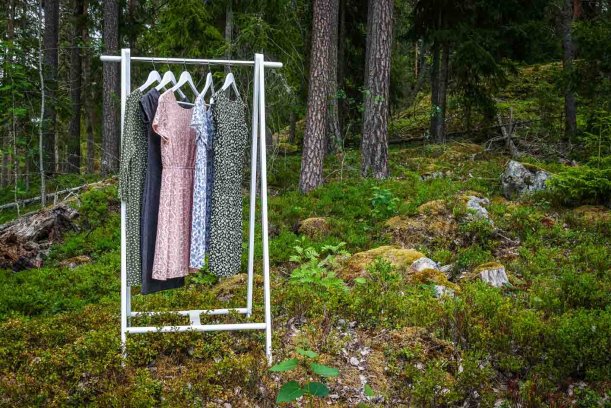
PEFC launches guide to sourcing
Brands need to up their game in promoting the benefits of responsibly-sourced man-made cellulose, survey reveals.

19th June 2024
Innovation in Textiles
|
Geneva, Switzerland
PEFC, the Geneva-headquartered forest certification organisation, has published the results of a new consumer survey, Fashion from Sustainable Forests, conducted in four key European markets – France, Italy, Spain and the UK.
It provides an in-depth exploration of consumer awareness in respect of forest fibres used in fashion collections, revealing significant gaps between consumer expectations and perceived brand progress.
The urgent need for the fashion industry to move away from virgin fossil-based synthetics such as polyester is well-publicised, yet the production of polyester continues to grow and is currently reported to make up around 54% of produced fibre worldwide.
In the search for potentially sustainable and scalable alternatives, man-made cellulosic fibres (MMCFs) such as viscose and lyocell are growing in popularity. The MMCF market is predicted to grow from 6 billion to 10 billion tons over the next 15 years making it increasingly important for the industry to ensure that future growth is sourced from sustainably managed forests.
The EU’s deforestation regulation (EUDR) is due to be enforced from the start of 2025, yet research reveals that only 12% of brands currently publish time-bound measurable commitments to deforestation.
The new PEFC survey reveals three key areas of consideration for brands to adopt whilst sourcing MMCF for use in their collections.
Concern
Firstly, it reveals that three-quarters of adults surveyed would be concerned if forest-derived fibres in their clothes had a negative environmental impact such as deforestation, biodiversity loss or climate change. It is equally important to them that garments made from forest-derived fibres come from sustainably managed forests and that brands know the origin of the forest-derived fibres used in their collections.
Interestingly, Italian consumers ranked as the most highly concerned of the group with 90% stating this is important.
Over three quarters also believe that fashion brands need to increase their sustainability efforts and responsible sourcing of forest-derived fibres for their collections, yet only a quarter believe that fashion brands are effectively addressing their concerns over the environmental impact.
Furthermore, only 13% felt that brands give enough sustainability information regarding forest-derived fibres such as viscose or lyocell on clothing labels in store, and only 18% believe there is sufficient information online. Those in the UK demonstrated the lowest satisfaction in this area, with only 16% feeling satisfied with brand efforts on the topic, compared to 38% of French consumers.
Value
In addition, 68% of those surveyed said they would purchase from brands publishing information about their sustainable sourcing practices, and 64% believed that sourcing from sustainably managed forests would increase the value of a brand.
When asked which factors increased the level of trust in a brand’s fibre sourcing claims, 50% said independent sustainability certifications, 35% a brand’s own sustainability focused range and 29% consumer reviews, followed by brand reputation at 28%.
Independent sustainability certifications appear to be important for consumers. Results show that shoppers have more trust in independent certification labels than a brand’s own.
While exploring attitudes and behaviour relating to sustainability labels, 59% of adults surveyed said they seek them out – always or sometimes – while shopping for clothes, and 71% said they would like to see certifications confirming forest fibres had been sourced from sustainably managed forests. Furthermore, 64% said they would be likely to purchase clothing with certification labels verifying sustainably sourced forest fibres and over 60% said that the presence of a sustainability label on clothing positively influences their purchasing decisions. Finally, 59% said they would be willing to pay more for a garment made from a certified material, with 43% being willing to pay 10% extra or more.

Business intelligence for the fibre, textiles and apparel industries: technologies, innovations, markets, investments, trade policy, sourcing, strategy...
Find out more